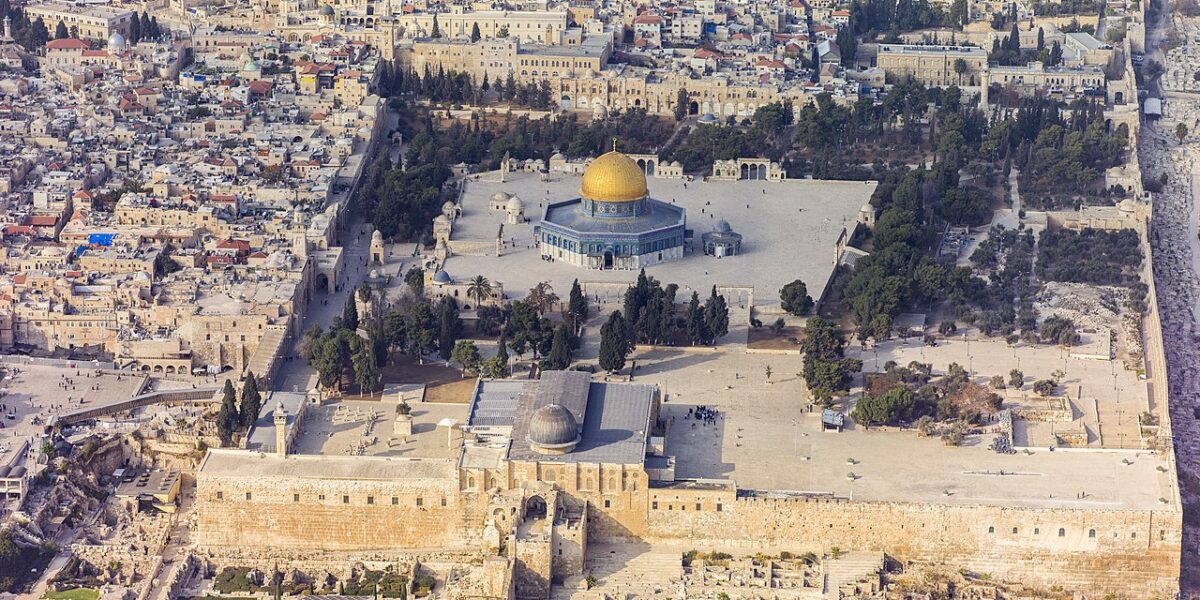The persistence of religion as a social, political and everything-else force is an ongoing surprise to many who grew up in the latter part of the 1900s. A century before, its persistence already seemed unlikely. Judaism is a special case but so are they all. In that instance, it has much to do with Israel.
The conflict in what’s still often called the Holy Land could centre on many things — colonialism, racism, capitalism — but is today built around access to Jerusalem’s Temple Mount, where some religious Jews want to restore animal sacrifice and from which Muslims traditionally believe Muhammad ascended to heaven.
How did it come to this? “Hit a man in the face long enough,” wrote Paul Scott in The Raj Quartet, about conflicts in India before its bloody 1948 partition, “and he turns to his racial memory and his tribal gods.”
The rise of political Zionism in late 19th-century Europe — the drive to create a specifically Jewish state where one hadn’t existed for millennia — was fundamentally a result of being hit in the face too much. What’s remarkable is it did not involve a turn to its tribal god. Zionism was mainly secular; modern Israel was built mostly by irreligious or anti-religious Jews.
You could argue — as some Jewish thinkers did — that Zionism had a subconscious religious core which fuelled it emotionally: the ancient belief that God would send his messiah to lead Jews back from interminable, punitive exile to their eternally promised land.
Nevertheless, Israel’s rise and early years were secular. Devout Jews who lived there — and had, for centuries — were frequently anti-Zionist. They felt it was sacrilegious to pre-empt God’s power to choose the moment for sending his messiah by attempting to “force the end.” But gradually, the ultra-pious, especially as colonizers in the West Bank, became Zionists too.
Now that religious, messianic core in Zionism has come uncloaked. For the first time, Israel’s ultra-religious forces aren’t just making special deals to support the major parties in return for concessions. They’re at the heart of the government. They are pressing their views: the right of Israel to the entirety of Palestine based solely on God’s promise to their mythical Biblical forefathers.
The demographics are indecisive. About 45 per cent of Israeli Jews identify as secular; 10-14 per cent as politically and religiously hardline Haredim; 33 per cent as traditional, i.e. religiously observant but often as much for cultural as religious reasons; 12 per cent as orthodox but not fanatical; others as religiously liberal.
It has the makings of a typically messy civil war. (In the American Revolution, a third were for, a third against and a third undecided.) But there is a key difference.
You can argue with Zionist secularists and religious moderates. They’ve told many lies (Israel is a land without people for a people without a land … There is no such thing as a Palestinian …) but they feel obliged to present evidence and arguments, so concessions and compromise are conceivable.
You can’t argue with religious fanatics who believe in one indisputable, literal interpretation of Scripture. Which makes sense, I suppose, unless you’re willing to defy an omnipotent being who is so spectacularly biased. Progress is impossible.
The power of messianism in Judaism is easy to underestimate. That’s because for the West’s Christian majority, the power of the messianic moment came and went with Jesus’ crucifixion and resurrection, leaving a promise of individual salvation. His second coming was a pale afterthought. For Judaism, the messiah has yet to arrive and its meaning is largely historical and political. It led to tragic mass outbursts, like the Sabbatian movement in the 17th century.
Its potential is explosive and uncontrollable. Gershom Scholem, a Zionist I studied with in Israel, who excavated the deepest, most irrational elements of Jewish messianism, said “it would be catastrophic if the Zionists or the Zionist movement erased or blurred the borders between the religious-messianic plane and political-historical reality.” But the moment he dreaded may be here.
This column originally appeared in the Toronto Star.



